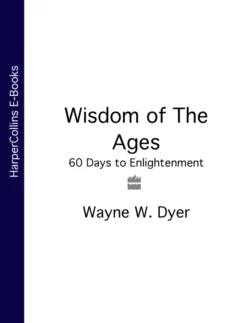Wisdom of The Ages: 60 Days to Enlightenment

Уэйн Дайер
Тип: электронная книга
Жанр: Саморазвитие, личностный рост
Язык: на английском языке
Стоимость: 697.37 ₽
Статус: В продаже
Издательство: HarperCollins
Дата публикации: 16.04.2024
Отзывы: Пока нет Добавить отзыв
О книге: Bestselling author and personal development guru Wayne W. Dyer shows us how to apply the insight of 60 of the world′s greatest thinkers to our daily lives, based on a powerful collection of writings, poems and sayings by luminaries of the past twenty-five centuries, including Rumi, Whitman, Jesus, Einstein, Buddha, Shakespeare and many others.In this powerful and inspirational book, Wayne Dyer interprets a collection of writings, poems and sayings by some of the greatest thinkers of the past twenty-five centuries, showing us how to apply their teachings to the here and now to give meaning to our lives.The book is based around 60 extracts of inspirational writing from luminaries of the past, including Buddha, Jesus, Michaelangelo, Rumi and Whitman. Among the contributions are words on the power of prayer by St. Francis of Assisi as well as thoughts on the importance of action by Mother Theresa.Wayne Dyer then goes on to explore fully the meaning of each piece of wisdom and show us how to actively apply them to our modern lives.The book can be used as a 60-day spiritual programme, with one entry being read a day, but has also been designed to be read all together or dipped into for instant wisdom.The writings are arranged thematically, for example: Work; Forgiveness; Laughter; Kindness; Inspiration; Balance; Hope.